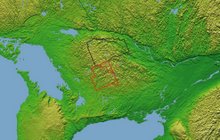April 27, 2009
The Toronto Star
Environmentalists in battle to be heard in pesticide case
NAFTA can block their participation and take arbitration proceedings
behind closed doors
by Luke Eric Peterson
Look out, Ontario.
Dow Chemicals has filed a claim under the North American Free Trade
Agreement seeking compensation for a Quebec ban on lawn pesticides.
Dow says that the ban amounts to an unfair "expropriation" of the
company's Quebec pesticide business.
Although the NAFTA claim is focused on the Quebec ban, don't be
surprised if Ontario comes into the sightlines now that a similar
province-wide ban came into effect last week.
The ramifications of this NAFTA dispute have spurred environmental
groups to mobilize for battle. A hint of the coming fireworks could be
glimpsed on Parliament Hill late last month.
In hearings of the Standing Committee on International Trade,
environmental groups signaled their plans to intervene in any
forthcoming NAFTA arbitration proceeding.
These groups insist that governments should be permitted to act on a
precautionary basis to shield vulnerable groups such as children -
even when the scientific evidence is uncertain as to the long-term
health impacts of certain substances.
They plan to present their own views to the arbitration panel that
will hear Dow's case.
However, the groups complain that the NAFTA Chapter 11 arbitration
process is less than welcoming when it comes to hearing from concerned
citizens and other interests.
In testimony to Parliament last month, environmental advocates
lamented that NAFTA - unlike more recent trade pacts - permits foreign
companies to sue a NAFTA government behind closed doors.
Will Amos, an Ottawa-based lawyer representing the David Suzuki
Foundation and the Quebec group Equiterre, says that his clients can
submit written arguments to a NAFTA arbitration panel, but they may be
blocked from showing up and watching, or participating in these high-
stakes arbitration proceedings.
"There is no guarantee that the investor won't request confidential
proceedings, which would further limit our ability to understand what
case they're bringing, and there will be no opportunity for us to make
oral representations before the tribunal," Amos says.
"This is totally unlike the Supreme Court of Canada," he adds.
Indeed, it's unfortunate that NAFTA disputes can be arbitrated in
private - unlike domestic court hearings
Otherwise, members of Canada's Supreme Court might benefit from
sitting in on these arbitration hearings, and gaining a better
appreciation of this NAFTA process.
If permitted into the hearing room, the justices might be taken aback
by the extent to which NAFTA tribunals can now review the actions of
governments.
In fact, one of the things that has incensed many members of the
environmental community - and which might bemuse members of the
Supreme Court - is that pesticide bans in other parts of Canada have
already been upheld by the Supreme Court of Canada.
In 2005, the court dismissed an effort by a pesticide industry
association to challenge a ban introduced by the municipality of
Toronto.
Environmentalists assumed that this ruling affirmed the right of
governments to act proactively so as to minimize potential health
risks.
However, it now appears that the Supreme Court was merely engaged in a
dress rehearsal.
Sure, pesticide bans in different parts of Canada have been declared
constitutional by the highest court in the land, but in the 21st
century, constitutions are not the only law of the land.
Rather, it will fall to three arbitrators - one appointed by Dow, one
by Canada, and the third by mutual assent - to determine whether our
North American constitution, the NAFTA, sanctions the actions of the
Quebec government.
The Dow arbitration promises to be of seminal importance.
Dow protests that Quebec lawmakers failed to take heed of several risk
assessments, including one by Canada's federal government, which
showed that the pesticide ingredient 2,4-D "does not entail an
unacceptable risk of harm to human health or the environment."
Of course, others - including some governments - have questioned
whether risk assessments should be the final word on such matters.
Environmental and medical groups like the Canadian Cancer Society have
long argued that no amount of risk is worth taking when it comes to
"unnecessary" chemicals, such as lawn pesticides, which are used for
purely cosmetic purposes.
However, where governments wish to drive certain risks closer to zero,
it will fall to a panel of NAFTA arbitrators to decide who shall pay
the price for doing so: the chemicals industry or the Canadian
taxpayer.
COLIN MCCONNELL/TORONTO STAR FILE PHOTO
Premier Dalton McGuinty and Environment Minister John Gerretsen
announced the province's intention to ban cosmetic use of pesticides
April 22, 2008.
Luke Eric Peterson is editor of Investment Arbitration Reporter, an
online news service reporting on NAFTA-style investor-state
arbitrations (www.iareporter.com).
http://www.thestar.com/printArticle/624693
======================
April 27, 2009
The Toronto Star
MP pushes for national ban
New Democrat MP Pat Martin has introduced a private member's bill in
the House of Commons that would impose a national ban on the cosmetic
use of pesticides on lawns, gardens and in parks.
Martin, a member from Winnipeg, says his bill would ban the use of
pesticides until there is scientific evidence they are safe. The bill
would take effect on Earth Day, April 22, next year if it's approved
by the Commons. Private members' bills are rarely passed, however.
Martin says he wants to force manufacturers to prove that their
products are safe.
Canadian press
http://www.thestar.com/printArticle/624694

No comments:
Post a Comment